Absurdist fiction is a particular genre of writing that can be thought-provoking and informative as well as confusing and frustrating. In this type of work, authors use specific tools to portray their ideas on grand, existential topics. The result is often strange, surreal, or downright trippy.
This post provides a brief exploration of absurdist fiction and what makes it unique.
What Is Absurdist Fiction?
Absurdist fiction is a novel, novella, or short story that has the following characteristics:
- Existential Themes: Absurdist fiction tends to focus on themes such as morality, humanity, the afterlife, or how the universe came into being.
- Surrealism: In these works, chronology and even reality may become warped. Characters or events might seem unreal or bizarre, and may be difficult to understand at first.
- Dark Humor: The use of comedy to explore those aforementioned existential themes is a common feature of the genre. Absurdist humor is often quite dark to reflect the complexities of the questions it tries to answer.
- A Sense of Purposelessness or Meaninglessness: As you might imagine, the focus on existentialism can lead characters in absurdist fiction to experience the dread that so often accompanies deep thought on these subjects. This may manifest as a general feeling of purposelessness, disillusionment with social structures such as religion or the government, or as an overall nihilistic outlook.
- Social Criticism: All of the features listed above are ultimately put to use to make some kind of commentary on society at large.
All together, absurdist fiction may seem strange, meandering, or even grotesque on the surface. But if you care to look, these works of literature attempt to answer some of the biggest questions posed by human kind, while also challenging the current status quo.
Examples of Absurdist Fiction
It’s often easiest to understand a particular style or genre if you study some of the most famous examples of it. Here are five of the most popular absurdist works of fiction you can read right now.
1. Slaughterhouse-Five
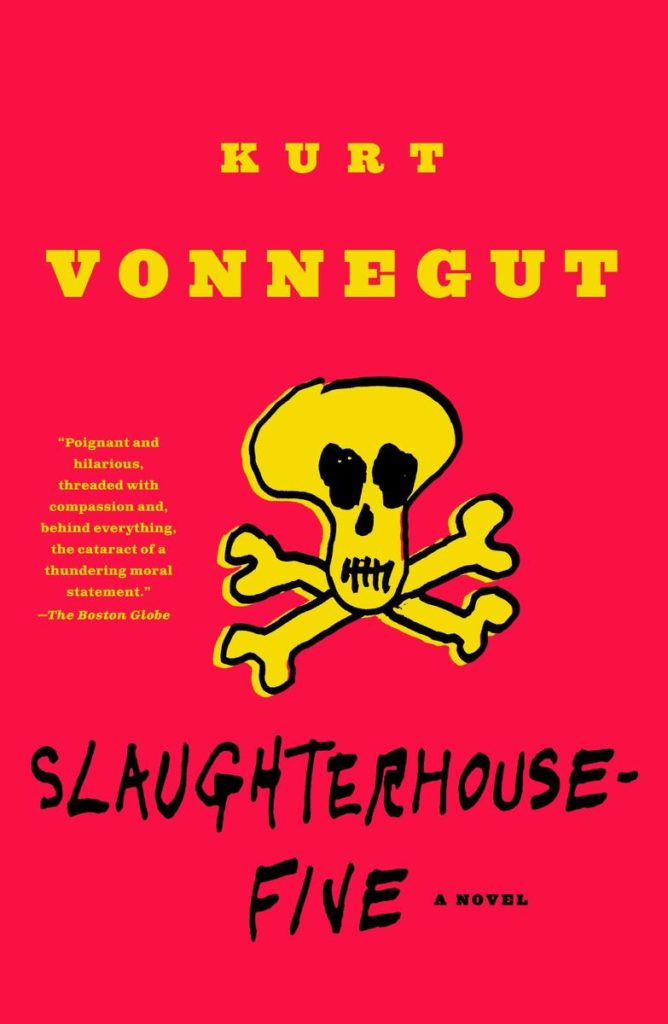
Kurt Vonnegut’s Slaughterhouse-Five is an achronological novel about ex-soldier and sometimes-time-traveler Billy Pilgrim. Billy’s experiences demonstrate a staunchly anti-war stance, providing a firm moral ground for the reader to stand on as they are transported back and forth through the protagonist’s life.
2. Catch-22
Catch-22 is another anti-war novel taking place during World War II. Joseph Keller’s satirical book is told achronologically and features a disillusioned Army Captain named John Youssarian. Keller shows the effects of war on servicemen and how willing commanders are to sacrifice their reports for their own benefit.
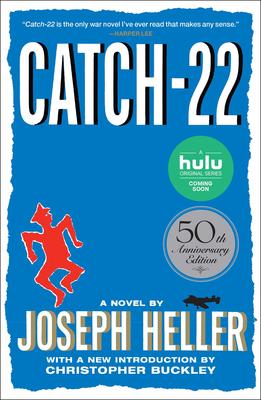
3. The Metamorphosis
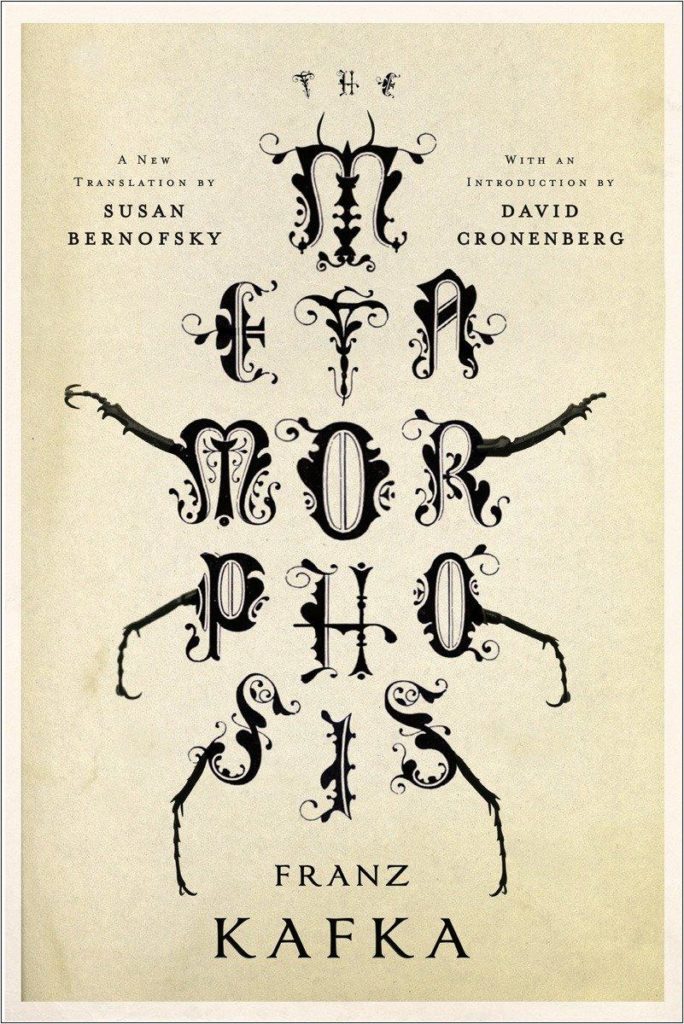
Franz Kafka’s infamous novella The Metamorphosis begins with the transformation of Gregor Samsa, a traveling salesman, into a giant insect. The rest of the story shows how his family, formerly dependent on Gregor for their livelihood, must adapt to their new circumstances while Gregor himself becomes increasingly despondent about being trapped in the house.
The Metamorphosis has never had one clear interpretation, although many scholars and other writers have posed their theories as to the meaning of the tale.
4. Kafka on the Shore
Haruki Murakami’s Kafka on the Shore tells two seemingly unrelated stories that are eventually pulled together. It alternates between the journeys of Kafka, a teenage boy who has run away from home, and Satoru Nakata, an elderly man who can talk to cats. Kafka on the Shore explores themes such as metaphysics and the relationship between dreams and reality.
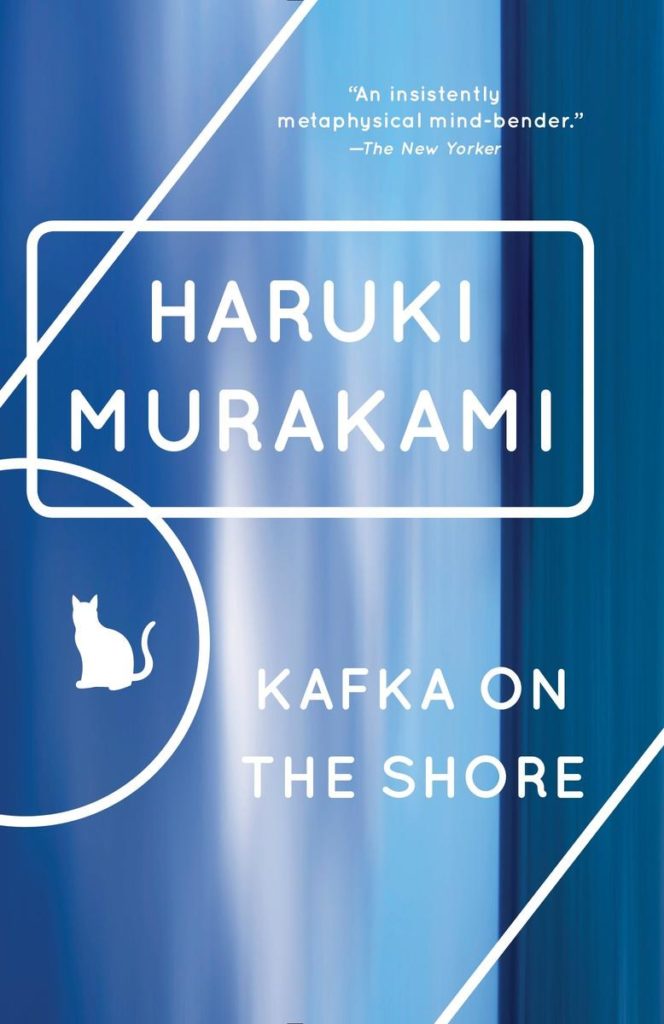
5. Rosencrantz and Guildenstern Are Dead
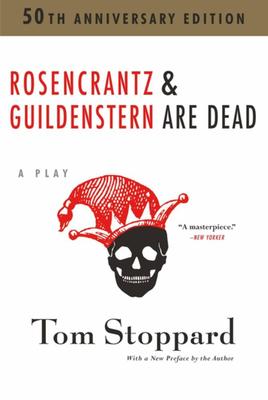
Rosencrantz and Guildenstern Are Dead is a play about two minor characters from Hamlet. In Tom Stoppard’s absurdist spin-off, Hamlet’s childhood friends become the main characters of the story. The titular pair spends much time speculating on the nature of reality while the events of Hamlet unfold in the background, eventually leading to their inevitable deaths.
Conclusion
Absurdist fiction is a challenging yet fascinating genre that includes many well-loved works of literature. Whether you’re interested in reading more widely within this genre or looking to write some absurdist stories of your own, these characteristics will help you determine if the work in question aligns with the standards of the genre:
- Existential Themes
- Surrealism
- Dark Humor
- A Sense of Purposelessness or Meaninglessness
- Social Criticism
Want to see more posts like this one? Make sure to sign up for my monthly newsletter and follow me on Instagram!
Featured Image Credit: Unsplash.


Leave a Reply